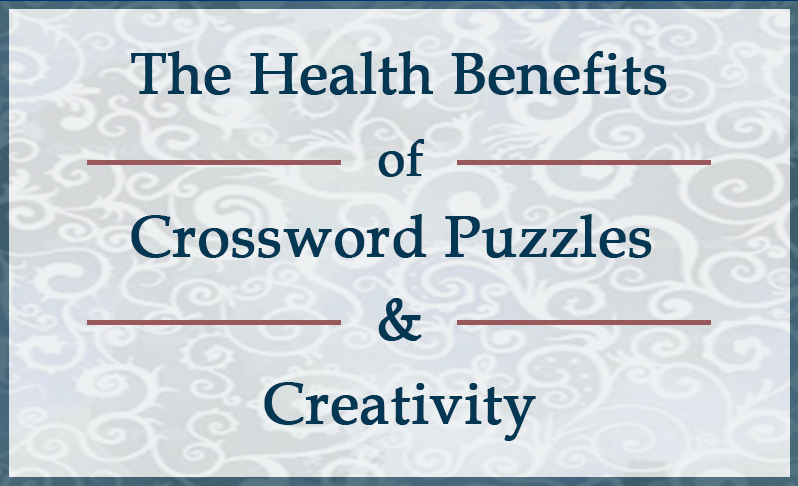Recently we posted on the value of collaborative cruciverbalism—i.e., solving crossword puzzles with others is an effective tactic for developing creative thinking. In the post we demonstrated the reasons for our belief—the practice involves a lot of our creative thinking strategies (e.g. collaboration, perception shifting, piggybacking) we discuss in Introduction to Applied Creative Thinking (2012).
A recent article in the Wall Street Journal (2 September 2014) contributes another reason you might want to sharpen your pencil every day and dig into a crossword puzzle. (Tweet this quote.) According to Ann Lukits (“Puzzles Boost Verbal Skills, Cut Dementia Risk,” D1), you may want to take your daily dose of cruciverbalism: “Solving crossword puzzles may bolster verbal communication skills in older people and reduce their chances of developing dementia, says a study in the September issue of the International Journal of Geriatric Psychiatry.”
Lukits stresses that a daily dose of crosswords “can improve memory and brain function in older adults” as well as “improve the speed of thinking and talking,” and “improve mental functions in patients with brain damage or early dementia.” In fact, improvements in verbal-fluency scores were “three times higher in the crossword group” than those in a group who merely passively recorded diary entries.
The key element seems to be utilizing an active mind that seeks patterns. Admittedly, some crossword clues simply demand the solver step on the bottom rung of Bloom’s Taxonomy and remember a Tom Cruise co-star in Top Gun. On the other hand, other clues such as “Cruise control” (demanding five letters) force you to climb Bloom’s ladder a little higher. Is “Cruise control” merely a literal question demanding you remember, or is it a pun on the name “Tom Cruise”?
Cleverly, the puzzle constructor placed “Cruise” at the beginning of the clue so that the capitalization may or may not indicate a proper noun. The solver must therefore evaluate the clue as offering several possibilities. If the solver can analyze (another Bloom higher-order skill) the clue so as to recognize that “vehicle” as in “star vehicle” is Hollywood jargon for a film, TV show, or video (admittedly that skill is easier if the solver has some familiarity with Variety, a trade publication), then “Cruise vehicle” could be a clever way of saying a five-letter word, MOVIE.
A solver might lightly pencil in this word, but if the crosses on MOVIE don’t fit, the solver may have to use the creative thinking skill of perception shift to come up with an alternative answer. The point is that whether or not MOVIE is the correct answer, the solver has been forced to have an active mind. Interestingly, in another puzzle the very same clue of “Cruise control” may generate an entirely different answer, so merely remembering this clever turn on Tom Cruise’s name may not be all that’s needed for the next solution.
For us the great thing about crossword puzzles is their abundant availability. Some appear online, some are found in daily newspapers, and some show up on Christmas morning in book form. Some are easy (e.g., local newspaper), some are challenging (e.g., USA Today, Friday Wall Street Journal), and some are down-right difficult (Friday-Sunday New York Times).
Try solving a puzzle. As the slogan says, a mind is a terrible thing to waste . . . or lose.
Author
 Ph.D Hal Blythe writes literary criticism to mystery stories. In addition to the eleven books he’s published with New Forums, Hal has collaborated on four books on a variety of subjects, over 1000 pieces of fiction/nonfiction, and a host of television scripts and interactive mysteries performed by their repertory company. He is currently co-director of the Teaching and Learning Center for Eastern Kentucky University. Meet Hal Blythe.
Ph.D Hal Blythe writes literary criticism to mystery stories. In addition to the eleven books he’s published with New Forums, Hal has collaborated on four books on a variety of subjects, over 1000 pieces of fiction/nonfiction, and a host of television scripts and interactive mysteries performed by their repertory company. He is currently co-director of the Teaching and Learning Center for Eastern Kentucky University. Meet Hal Blythe.




